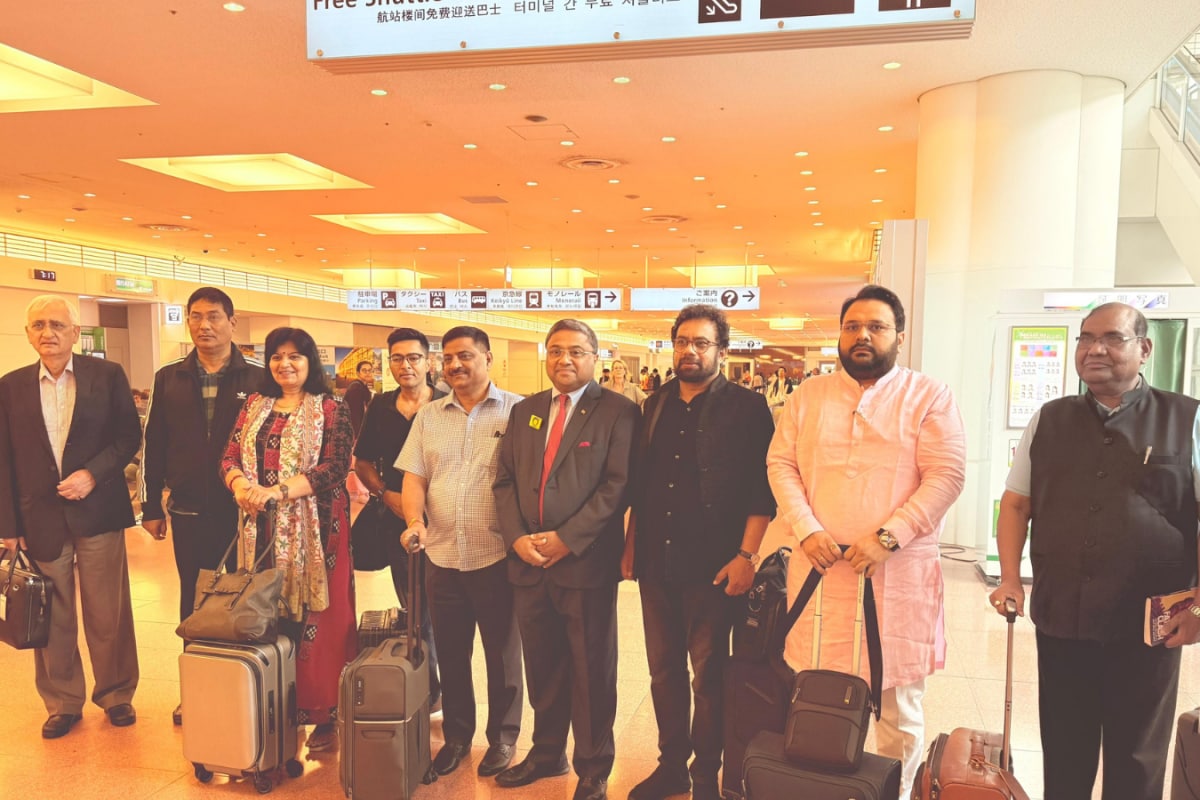

In a proactive move to address global concerns regarding terrorism, India has launched a widespread diplomatic outreach, code-named "Operation Sindoor," following the recent military actions against terror infrastructures in Pakistan and Pakistan-occupied Kashmir. As part of this initiative, the first two of seven multi-party delegations have already embarked on their journeys to the United Arab Emirates (UAE) and Tokyo, Japan, on Wednesday, May 21, 2025. This global outreach aims to present India's resolute stance against terrorism and to expose Pakistan's alleged role in sponsoring it.
The delegation to the UAE is led by Shiv Sena MP Shrikant Eknath Shinde, and includes BJP leaders Bansuri Swaraj, Atul Garg, and Manan Kumar Mishra, BJD leader Sasmit Patra, IUML's ET Mohammed Basheer, former minister SS Ahluwalia and former diplomat Sujan Chinoy. This team will also extend its outreach to Liberia, Congo, and Sierra Leone. Simultaneously, the delegation to Japan is led by JDU MP Sanjay Kumar Jha, accompanied by BJP MPs Aparajita Sarangi, Brij Lal, Hemang Joshi, and Pradan Baruah, TMC's Abhishek Banerjee, CPI(M)'s John Brittas, former External Affairs Minister and Congress veteran Salman Khurshid, and former diplomat Mohan Kumar. This group will further visit Indonesia, Malaysia, South Korea, and Singapore.
These delegations, comprising 59 members of Parliament, former ministers, and politicians from across party lines, will visit a total of 33 countries and the European Union headquarters in Brussels. The initiative follows "Operation Sindoor," India's response to the April 22 Pahalgam terror attack, which resulted in the deaths of 26 people, mostly civilians. The Indian armed forces targeted terror camps in Pakistan and Pakistan-occupied Kashmir, leading to retaliatory actions from Pakistan that included drone and missile attacks aimed at civilian areas.
The primary objective of this global outreach is to present India's perspective on cross-border terrorism, particularly that emanating from Pakistan, and to highlight India's new approach to tackling such threats. The delegations are armed with detailed dossiers documenting Pakistan's decades-long support for terrorism and India's firm resolve to counter it. They intend to meet with parliamentarians, ministers, government officials, and think tanks in the host countries to emphasize India's commitment to peace while underscoring its determination to respond decisively to any attacks.
Foreign Secretary Vikram Misri briefed the delegation members, emphasizing that India has adopted a "new normal" in countering cross-border terrorism. The selection of the 33 countries was strategic, including members of the UN Security Council, nations with significant economic and defense ties with India, and countries where Pakistan may exert influence. This approach ensures that India's message reaches key global and regional players.
Members of the delegations have voiced strong opinions on the mission. Shrikant Shinde asserted that the teams aim to convey that India is a peace-loving nation but will retaliate if attacked, emphasizing India's focus on economic development versus Pakistan's involvement in developing terrorism. Sanjay Kumar Jha stated that terrorism is Pakistan's state policy and that India will expose Pakistan on the global stage. BJP's Aparajita Sarangi highlighted the importance of explaining India's strategy against cross-border terrorism and countering Pakistan's narrative to prevent misinformation at the UN Security Council.
The global outreach also aims to build international consensus against terrorism, strengthen diplomatic ties, and showcase India's commitment to global peace and security. The initiative reflects a unified national front against terrorism, with members from various political parties joining forces to represent India's interests and concerns on the international stage.